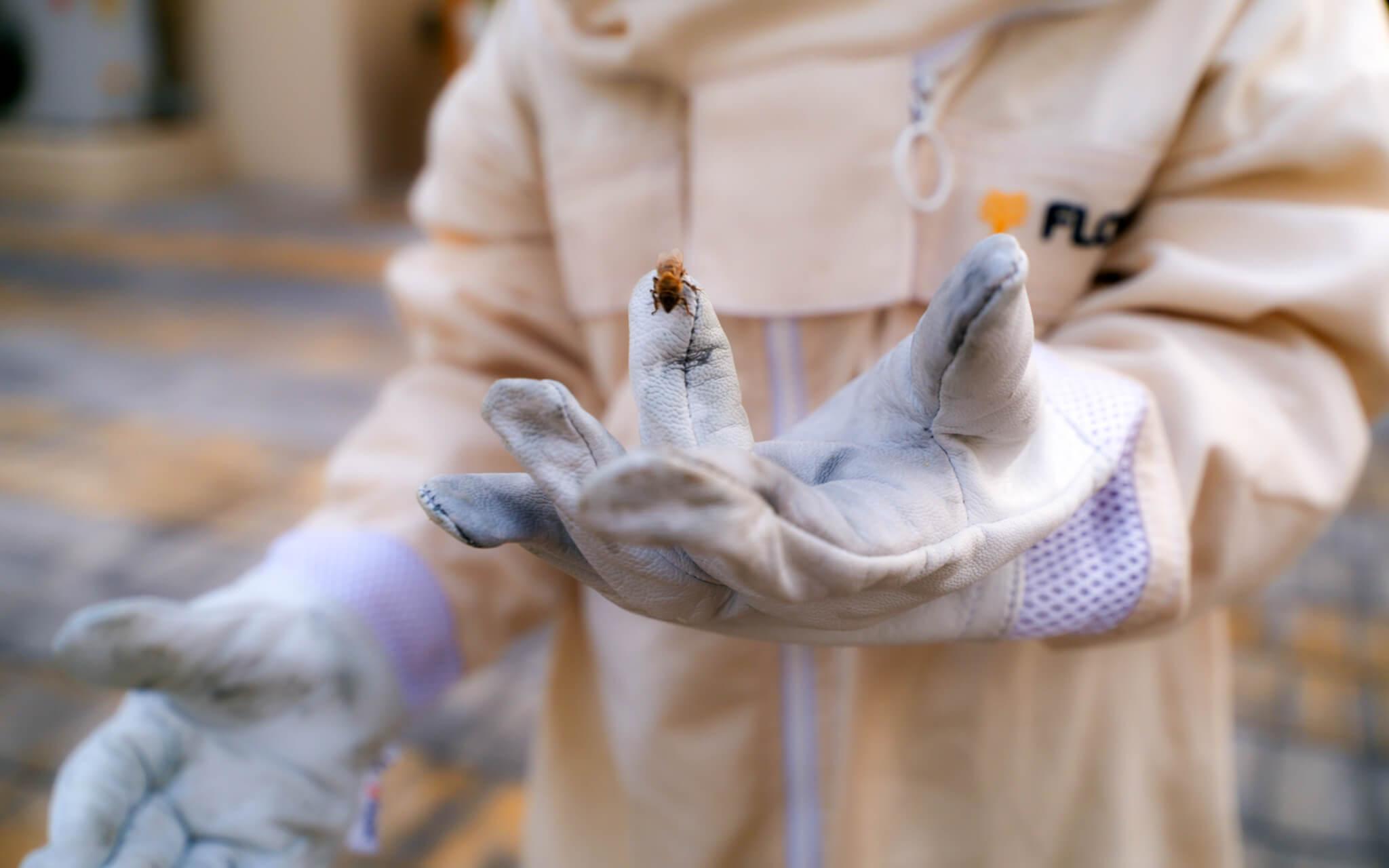The Hargila Army Rises
In mobilising her ‘Hargila Army,’ Dr. Purnima Devi Barman has not only rescued the greater adjutant stork from the brink of extinction but created a model where women's empowerment and environmental protection flourish together.
A simple bamboo house stood on the banks of the mighty Brahmaputra River, its rushing waters a constant companion to village life in Assam, Northeast India. Here, five-year-old Dr. Purnima Devi Barman found herself left in the care of her grandmother; her mother was ill and unable to care for her. Her world suddenly shrank to unfamiliar boundaries. “I became very naughty,” she admits. “I was in sadness.”
Every morning, her grandma led her from their humble home to the lush paddy fields. Despite never learning to read or write, the elderly woman was a fount of local ecological knowledge. “She taught me the local names of all the birds,” Purnima shares. “She was very creative – she made songs and stories about the birds.”
Together, they would sit and watch the mighty Hargila stork descend in flocks onto the surrounding fields, her grandmother pointing out their distinct features, weaving tales that captivated the child's imagination. “I became happy,” Purnima says simply. “I started healing by seeing the storks and found a deep connection with them.”
The greater adjutant, locally known as ‘Hargila’ (bone swallower), stands at five feet tall with an eight-foot wingspan. Their deep blue eyes contrast sharply against their bald heads and distinctive inflatable gular pouch.
“They do lots of bill clattering – tak, tak, tak,” she demonstrates enthusiastically. “It's a greeting behaviour or communication.”
Once numbering in the hundreds of thousands from South Asia, these birds were valued by farmers for controlling pests. Now, habitat loss has caused populations to plummet, and the Hargila to scavenge in landfills, transforming their image from beneficial allies to bad omens.
Purnima resolved to change their reputation and restore populations.
Defying cultural norms, she pursued science instead of early marriage and completed her master’s degree in Ecology and Wildlife Biology at Guwahati University.
By 2007, research for a PhD had started. “I decided I would do my PhD on the storks,” she explains. “People are worried about the mega species, the charismatic species. So nobody bothered about storks.”
People are worried about the mega species, the charismatic species. So nobody bothered about storks.
Soon after, marriage and twin daughters arrived and even with her husband away for work, she pursued her PhD as her children slept. Then, one day, Purnima received a distressing call about a man cutting down a tree containing stork nests. She rushed to the scene. “All the baby birds fell. A few birds were alive, and a few birds died. I asked, “Why did you do so? It’s not justice. It’s cruelty.”
The villagers dismissed the storks as bringers of bad luck, challenging her to take the birds away, but as she held the chicks in her arms, she felt an overwhelming kinship.
“The moment I was holding the babies, it was like my daughters – I found nature's calls inside me.” Purnima took the villagers' rejection of these magnificent creatures personally, and from that day, her priorities shifted.
Her PhD became secondary; she needed to transform community perceptions to save the storks. “I realised this can be done only by women,” she explains. “Our women are the changemakers. When I think about my mother and my grandma, I see both of them bringing peace to our home.”
It would take a remarkable vision to reverse this decline in stork populations. Purnima mobilised local women to create what she called ‘The Hargila Army’ - a grassroots conservation movement combining cultural traditions with environmental action. Equally central to the organisation is offering women economic opportunities by creating and selling stork-themed handicrafts.
Initially, local women were reluctant. So, Purnima started organising traditional cooking competitions that attracted small but enthusiastic groups. She then started introducing environmental games and activities. Even the Assamese tradition of baby showers could be used to bring the community and the Hargila closer together.
“When Hargila is nesting, we cut down trees. When we are going to be mothers, we celebrate. It is so opposite,” she explains. “So I started organising baby showers - 'Our Hargila birds are pregnant, let us celebrate.'”
Finally, her efforts paid off as women formed emotional connections to the species through traditional Assamese prayers. What began as small gatherings blossomed into a movement. “From 10 women to 13 women, we named them Hargila family first, then Hargila Army. Today, we have over 20,000 women who have joined.”
The initiative doesn't just protect storks - it transforms women's lives through economic empowerment. Purnima provided fashion training to local weavers, encouraging them to incorporate stork motifs into traditional textiles, creating popular products that found immediate market appeal.
The economic empowerment aspect of the Hargila Army proved especially valuable during times of crisis. During COVID-19, when many husbands lost income, the weaving program became a financial lifeline. She shares the story of Lobita, who once struggled with depression, now runs her own tailoring school. “She can give such a good talk now; she can write so well,” Purnima says proudly. “She had all the talents, but they were suppressed. Now they come out.”
The Army’s impact has been remarkable, from 27 nests to 252 and from 450 storks to 1,800. This success led the International Union for Conservation of Nature to reclassify the greater adjutant from ‘Endangered’ to ‘Near Threatened’ in 2023. Purnima aims to reach 5,000 birds by 2035 by expanding conservation efforts across new regions in India and Cambodia—the entirety of the greater adjutant's global range.
Purnima's legacy continues through the next generation; her twin daughters, infants when this remarkable conservation journey began, now run The Hargila Desk, a student-managed magazine and newsletter focused on nature and community conservation.
In recognition of her extraordinary conservation work and women's empowerment initiatives, Dr. Purnima Devi Barman has been named in TIME's Women of the Year 2025 list.
Today, as Purnima reflects, she’s taken back to where it all began – sitting with her grandmother by the Brahmaputra River. What started as a grandmother's songs has blossomed into a movement changing ecological outcomes and women's lives across Assam.
“Our Hargila is not just a bird. It is beyond that,” she says thoughtfully. "They talk to us to be wise, to remove the taboos from society. They give a message of wisdom about how we can live in harmony.”
Most Popular
The Climate Tribe delivers stories about Biodiversity and Conservation, Circular Economy, Food and Water , and how they intersect with climate.
Subscribe
Get the latest stories inspiring climate action around the globe straight to your inbox.






